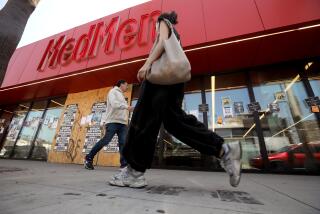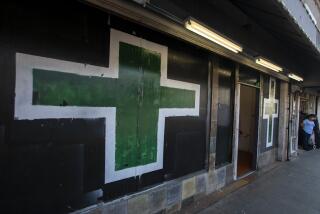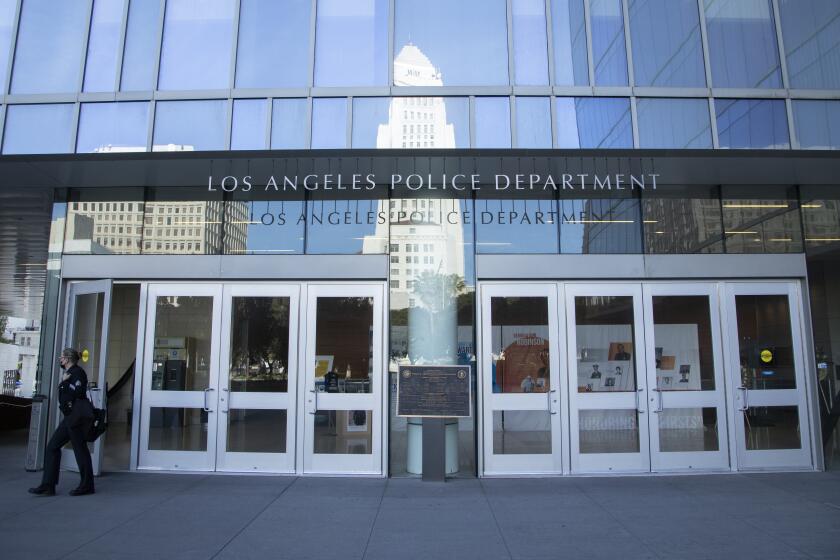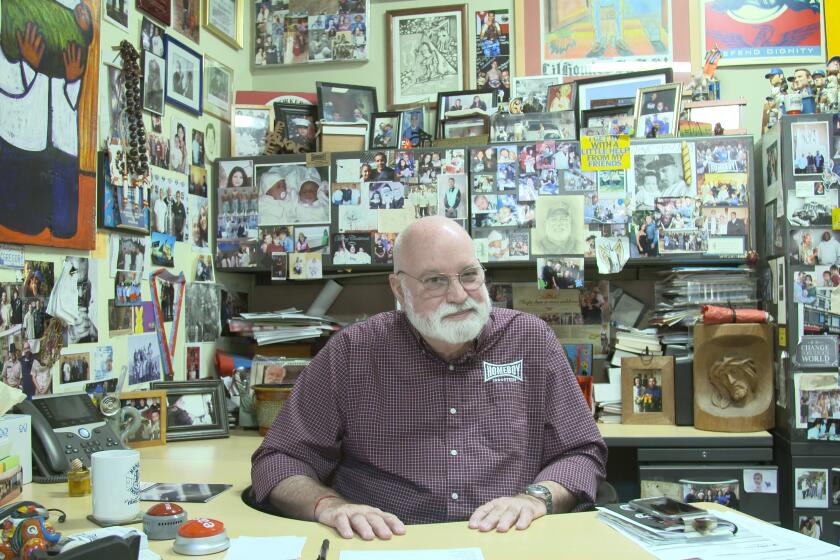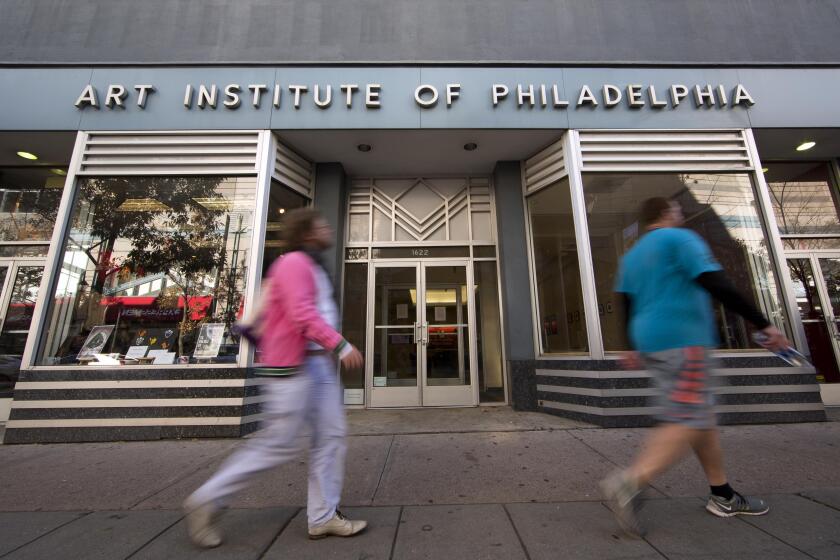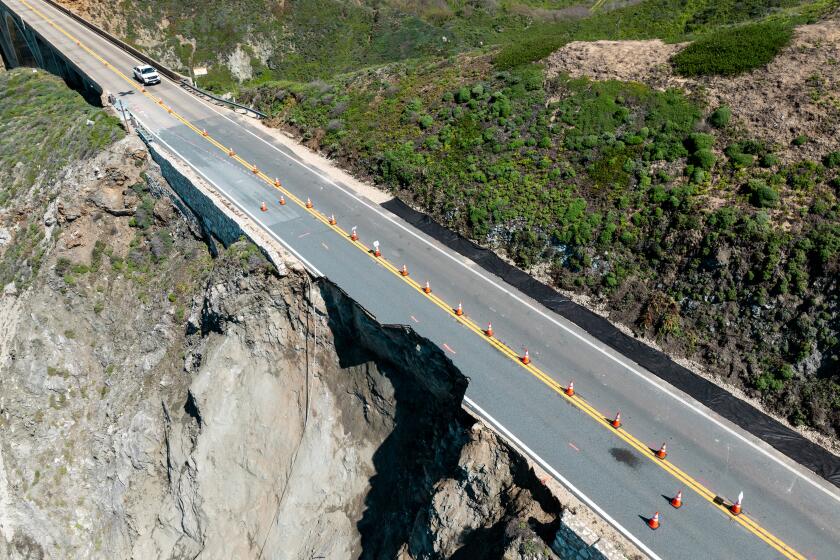More than 100 marijuana shops shuttered, L.A. City Attorney says
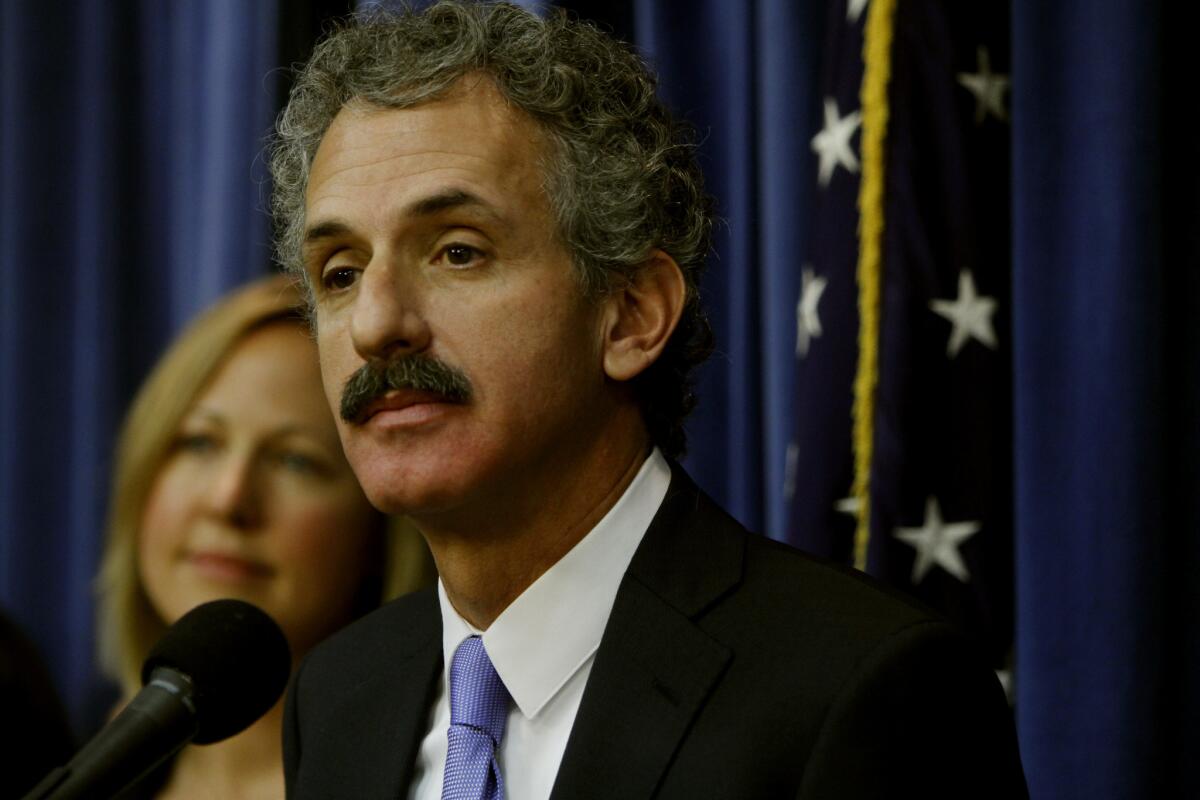
More than 100 pot shops have shut down since Los Angeles started enforcing new rules restricting medical marijuana dispensaries, City Atty. Mike Feuer announced Monday.
In addition to the rules prompting scores of closures, Feuer said city lawyers had successfully fended off a host of legal challenges. In one closely watched case, they prevented a dispensary from opening in Mar Vista, securing a permanent injunction before it could set up shop.
“We have a long way to go, but we have a great start,” said Los Angeles Police Chief Charlie Beck, who joined Feuer at a press conference.
The new law, passed by voters last year, taxes such businesses and gives limited immunity to pot shops registered under a string of city ordinances that began in 2007.
Feuer said he recently hired two more prosecutors to exclusively handle Proposition D cases. It is also focusing added attention on landlords and real estate professionals, releasing a new brochure to explain the rules to those renting space to pot shops.
“We don’t want our Realtor members to get in trouble with the law,” said Mel Wilson of the Southland Regional Assn. of Realtors, which supports the new push. “Nor do we want our clients to be in trouble with the law.”
Beck also said that 165 LAPD senior lead officers in charge of neighborhood policing, newly trained on the rules, would help identify new and existing shops that were illegal in their areas.
The city attorney said he couldn’t say how many marijuana dispensaries are now open in Los Angeles, since there is no permitting process for the shops. Before the measure passed last spring, police estimated roughly 700 dispensaries were operating, though others pegged the number far higher.
Despite the crackdown, there are signs that many more shops have opened: Since the rules went into effect last summer, more than 300 medical marijuana collectives have registered to pay business tax, including nearly 200 with no previous records in the tax system, according to the city finance office.
“There is an urban legend in Los Angeles that the mere receipt of a business tax registration certificate displays the lawfulness of a medical marijuana business -- and that is false,” Feuer told reporters Monday, displaying a placard of such a certificate labeled “Not a Permit to Operate.”
Feuer said the office was sending letters to marijuana businesses that had recently registered to warn them that “if they’ve opened for the first time since 2013, they can’t be lawful under Proposition D, and that they are subject to prosecution.”
However, the city attorney said there were no plans to ask the finance office to stop issuing those certificates in the first place. Attorney David Welch, who represents a marijuana dispensary that is challenging its prosecution under the measure, argues that the city was “creating confusion.”
“The city is failing to take control of the situation,” Welch said. “It should take charge, determine who qualifies and not qualifies, and only issue [registration certificates] to those individuals.”
Under Prop. D, approved by voters last year, pot shops and the landlords that lease them space can be prosecuted if the shops don’t meet several requirements, including being registered under past Los Angeles ordinances and operating an adequate distance from public parks, schools and other facilities.
Only a fraction of Los Angeles dispensaries meet all those rules, according to city estimates. Last year the city released a list of more than 100 shops believed to have met some of the requirements, but Feuer has stressed that simply being on that list does not afford any legal protection.
Opponents of the new rules say they are continuing to battle Prop. D in court. “We’re just in the beginning of our stages of attack,” said criminal defense attorney Bruce Margolin, director of the Los Angeles chapter of the National Organization for the Reform of Marijuana Laws. He argued the law was inherently unfair because it created “a kind of monopoly” for dispensaries that opened earlier.
Feuer and police officials are optimistic that the law would continue to be enforced, battling what Beck called the “blight issue” created by too many shops too close to schools or parks.
“This won’t be the last time we talk about medical marijuana,” Beck told reporters Monday, “but maybe this is the first time that we talk about it where we see a solution.”
Twitter: @latimesemily
More to Read
Start your day right
Sign up for Essential California for news, features and recommendations from the L.A. Times and beyond in your inbox six days a week.
You may occasionally receive promotional content from the Los Angeles Times.
